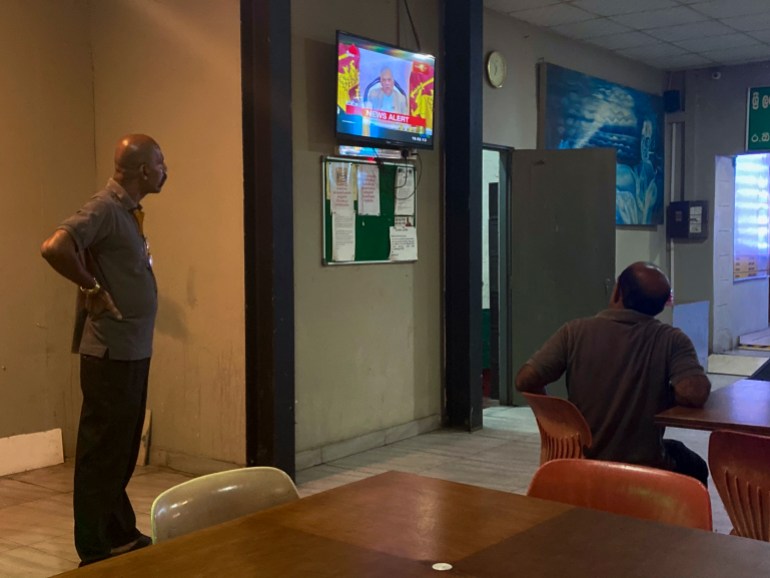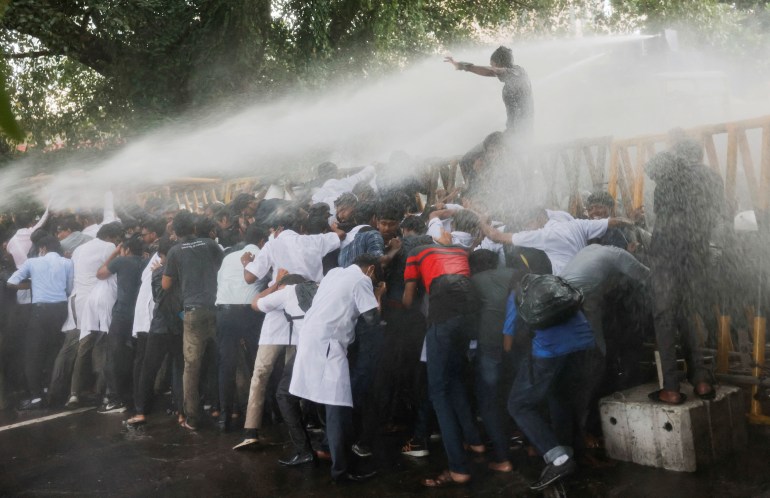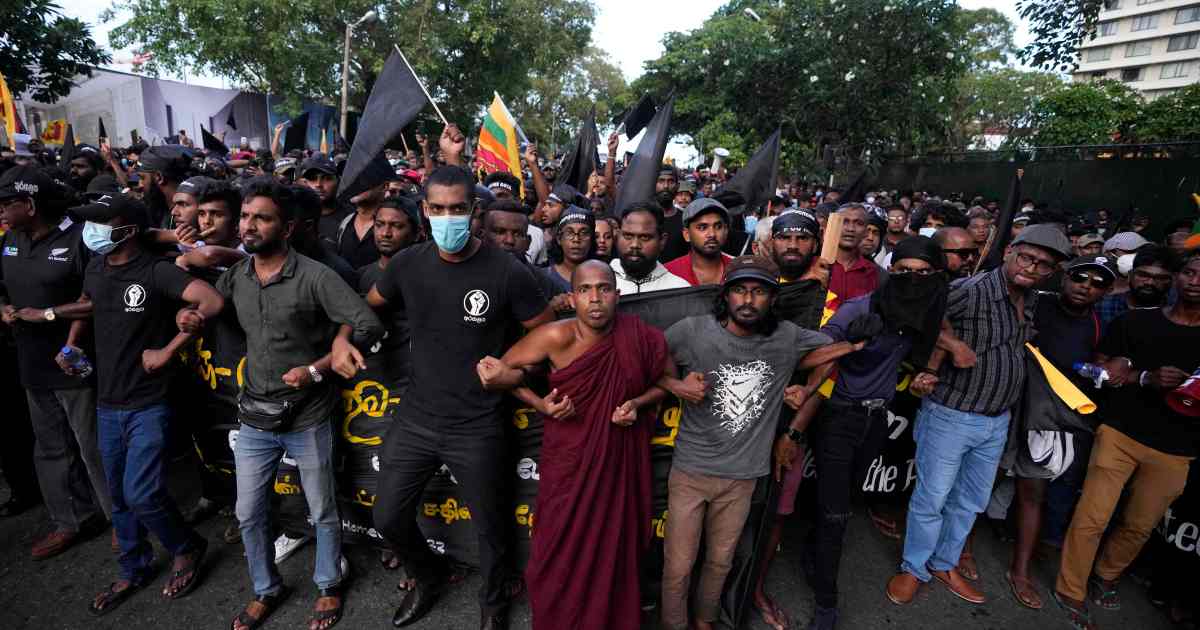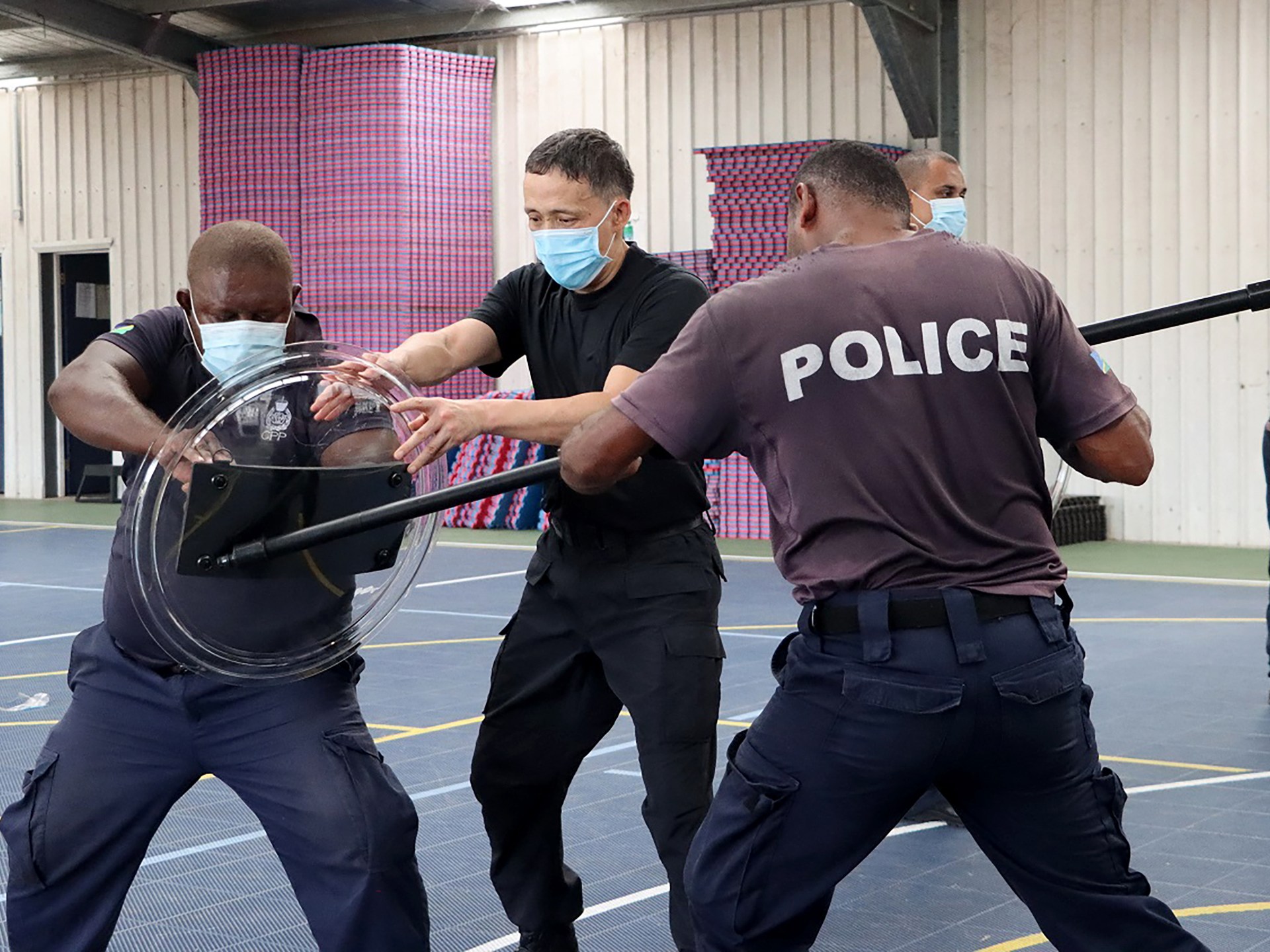Sri Lanka PM’s olive branch to protesting youth: join governance | News
Ranil Wickremesinghe goes on national TV to offer young protesters a greater say in how the crisis-hit island nation is administered.
Sri Lanka’s prime minister says the protesting youth groups will be invited to be a part of governance under political reforms he is proposing to solve the country’s political crisis triggered by an unprecedented economic collapse.
Prime Minister Ranil Wickremesinghe went on national television on Sunday evening, offering protesters an olive branch: a greater say in how the country is administered.
He said the powers of the president will be clipped and those of parliament strengthened under the proposed constitutional reforms. He said the governance will be broad-based through parliamentary committees where legislators, youth and experts will work together.
“The youth are calling for a change in the existing system. They also want to know the current issues. Therefore, I propose to appoint four youth representatives to each of these 15 committees,” Wickremesinghe said.

Protesters, consisting of mainly young people, have camped out outside the president’s office for more than 50 days. They are demanding the resignation of President Gotabaya Rajapaksa, holding him and his family responsible for the country’s economic crisis.
They also want a governance overhaul, saying successive administrations since independence from Britain in 1948 have misruled the country leading to economic and social crises.
According to Wickremesinghe’s proposal, one of the youth representatives will be appointed by the so-called “youth parliament” and the other three will come from protesting groups and other activist organisations. “The methodology used to choose these individuals can be decided by the youth organisations themselves,” he said.
There has been no immediate comment from youth groups on his proposal.
Setting up new broad-based parliamentary committees apparently can be done under the current constitution, but broader reforms such as reducing presidential powers would need the approval of the Supreme Court and a two-thirds parliamentary majority. It is not clear when the bill will be introduced for debate.
Wickremesinghe is not from Rajapaksa’s party, but was given the job after the president’s elder brother Mahinda resigned as prime minister on May 9 following weeks of protests, and when no other legislator agreed to step in.
Near daily protests
Sri Lanka’s students have led nearly daily protests in the main city of Colombo and elsewhere as the Indian Ocean island nation of 22 million people tethers on the brink of bankruptcy.
On Sunday, police fired tear gas and water cannon to disperse thousands of students trying to storm the president’s official residence in Colombo.
Medical students, many of them female, joined the protests, with many running for cover when authorities unleashed water cannon.

Nearby, thousands of men and women demonstrated for the 51st straight day outside Rajapaksa’s seafront office, demanding he step down.
Sri Lanka has already defaulted on its foreign loans, and is battling acute shortages of essential goods like cooking gas, petrol and medicines. People have been forced to wait for hours in long lines to try to buy goods and many still go empty-handed.
Violence erupted on May 9, when Rajapaksa supporters attacked peaceful protesters. Nine people, including a governing party lawmaker, were killed and the homes of cabinet ministers burned down. The unrest nearly dismantled the Rajapaksa dynasty after Mahinda Rajapaksa resigned as prime minister. Three of the president’s siblings and a nephew had already quit their cabinet posts.
Sri Lanka has been ruled by a powerful executive presidential system for nearly 45 years, and President Gotabaya Rajapaksa strengthened it further with constitutional changes as soon as he was overwhelmingly elected in 2019.
The country’s foreign currency reserves have dwindled to just enough to buy two weeks of needed imports of even the most essential supplies, including food, fuel and medicines.
Its currency has depreciated by 44.2 percent against the US dollar this year, while inflation hit a record 33.8 percent last month.
Authorities announced last month that they were suspending repayment of nearly $7bn foreign debt due this year. Sri Lanka has to pay up $25bn through 2026. The total foreign debt of the island nation is $51bn.
The government last month asked the International Monetary Fund (IMF) for urgent financial assistance. Wickremesinghe has said he will have an economic reform plan ready within two weeks to seek IMF approval for a bailout package.





Pingback: 다시보기
Pingback: moon bar edibles